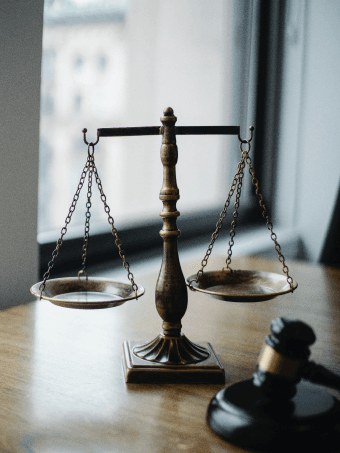What is the trademark opposition?
One of the stages of the trademark registration process is trademark publication for oppositions. During this relatively short window, owners of previously registered trademarks and entrepreneurs generally have the right to raise opposition against new trademark applications. On average, oppositions are raised in approximately 5% of the new applications.
The principal reason for raising an opposition revolves around the perceived similarity between the previously registered trademark and the new application, potentially damaging the owner’s reputation and creating consumer confusion. Once the opposition is received, the applicant can choose whether or not they wish to address the opposition (via an agreement or in a legal proceeding) or whether they wish to abandon the trademark application (and lose all fees paid to the IPO).
Who can oppose your trademark?
Any natural or legal person may become an opponent by filing a Notice of Opposition against a UK trademark application. The opposition must be based on the opponent’s “Earlier Right,” namely:
its earlier trademark application or registration;
common law rights protectable by passing off; and
other intellectual property rights such as copyright.
Earlier Rights can prevent the registration of a subsequent third-party application that conflicts with those Earlier Rights. For example, a conflict may occur where the mark applied for is identical or similar to the Earlier Right and where the application covers identical and/or similar goods or services to those protected by the Earlier Right.
What happens after somebody opposes your trademark?
The best approach for addressing an opposition really depends on the specific circumstances but, based on our experience, three general approaches can be taken:
Limit the selection of goods & services in trademark application: This ensures that the two brands do not overlap in the products / services offered to the consumers; hence, their perceived similarity is not a real problem.
Sign a co-existence agreement: There are numerous co-existence agreements in place between similarly sounding brands, clarifying the extent to which they can utilise their trademarks in specific contexts and countries
Challenge the opposition: When it comes to renown brands, in particular, even a minor similarity of the new trademark application to the established brand can result in opposition. In numerous cases, such oppositions can be successfully challenged as they lack sufficient merit that the co-existence of these two brands would result in consumer confusion since both brands operate in completely different industry sectors.
What are the costs of legal proceedings?
The losing party will bear all costs of the opposition. The awarded expenses do not relate to the professional cost actually incurred by the successful party but are awarded on a scale that is usually between £1,500 - £2,500. The UKIPO often decides that each party should bear its own costs if the opponent has only partially succeeded on some grounds of the opposition.
Need professional help with responding to trademark opposition? Book a free consultation during which we will go over the details of the case and figure out the best solution for your brand.


